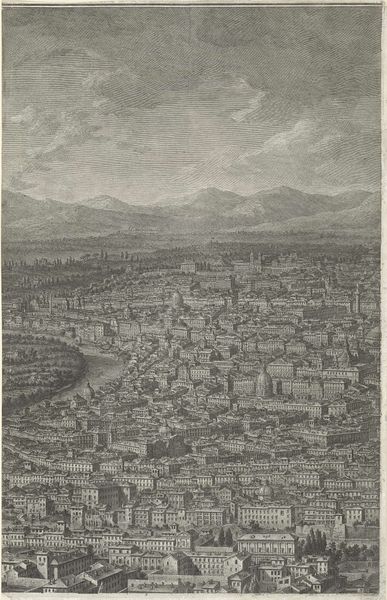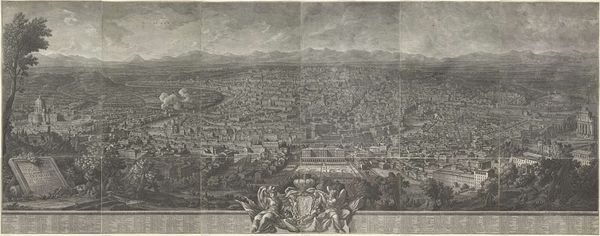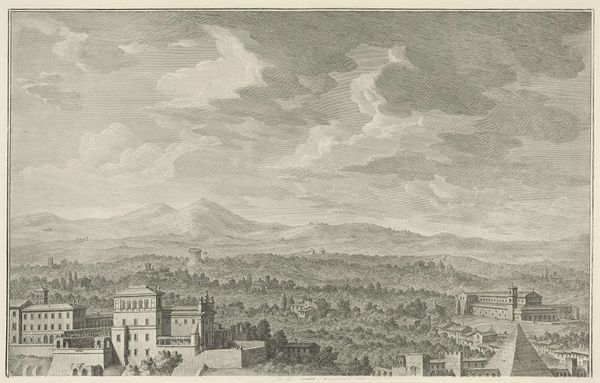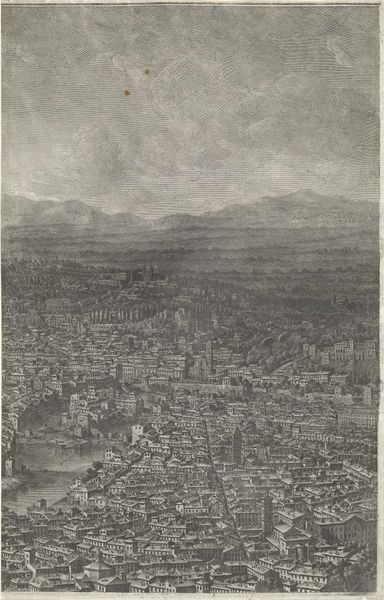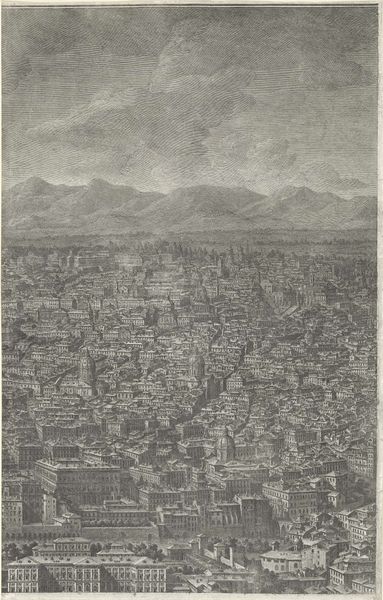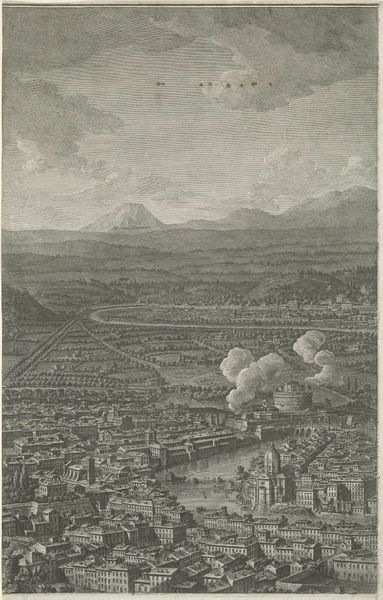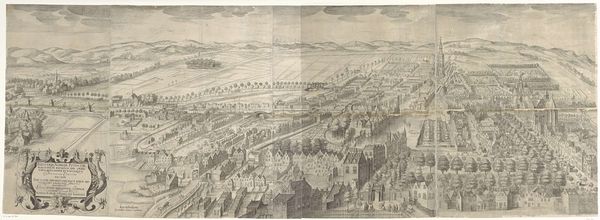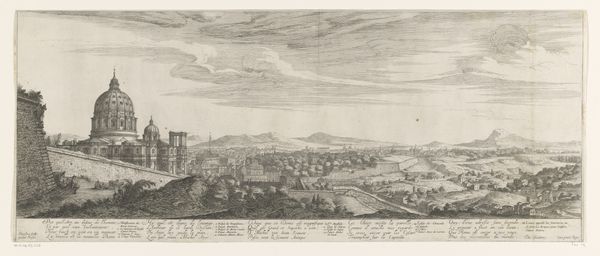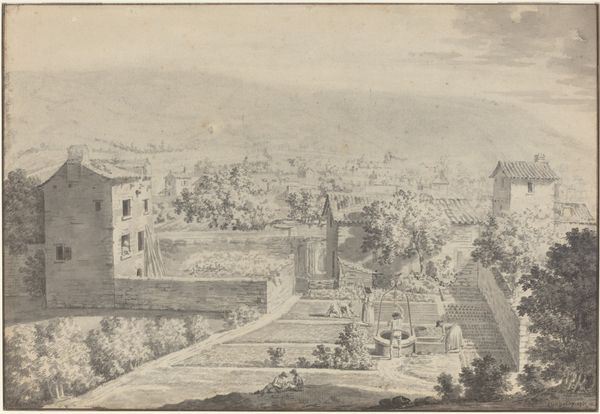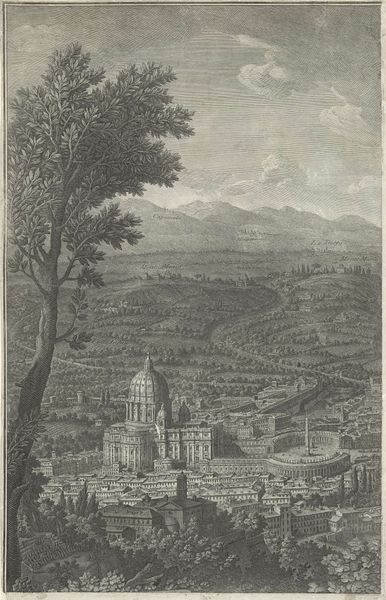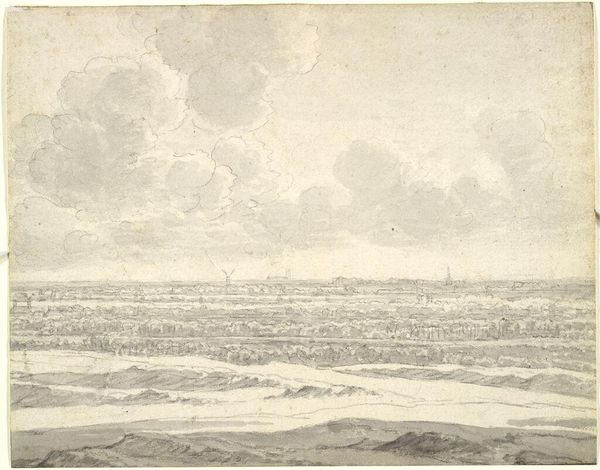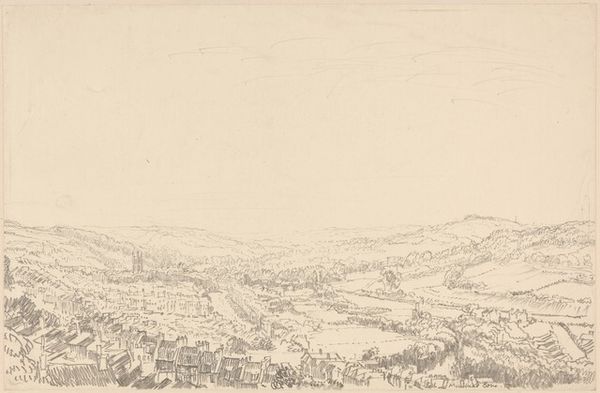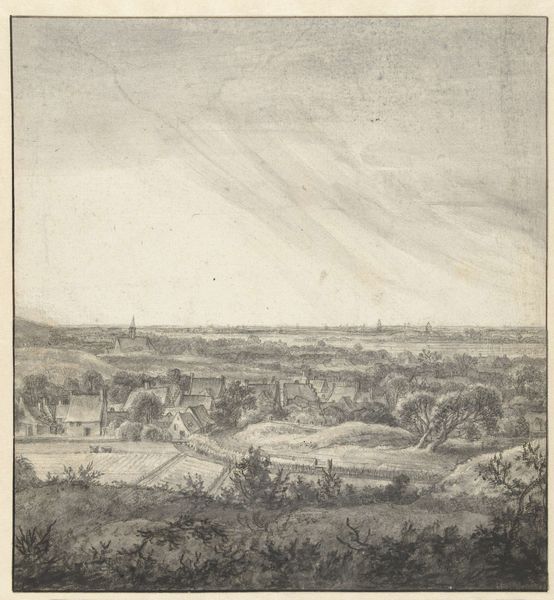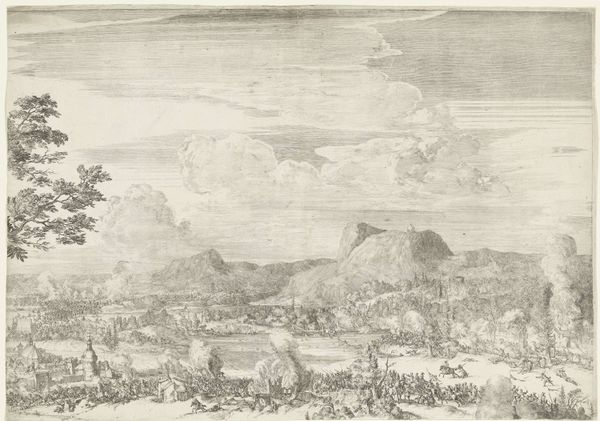
Dimensions: height 693 mm, width 435 mm
Copyright: Rijks Museum: Open Domain
Giuseppe Vasi made this panorama of Rome as an etching sometime between 1710 and 1782. It is a bird's-eye view that gives the viewer a sense of the city's landscape within the landscape of Italy itself. The image's meaning is formed through its visual codes and cultural references. Rome, as a geographic location, is a layered signifier. At the time this was made, Rome was an important city in the Papal States. It was defined by its geographic location and religious power. The image portrays not only the city itself but also the various institutional powers, like the church, that shaped life in the city. As historians, we can better understand works like this by researching not only the artist but also the city and the institutions that shaped its culture. Art is contingent on its social and institutional context.
Comments
No comments
Be the first to comment and join the conversation on the ultimate creative platform.
